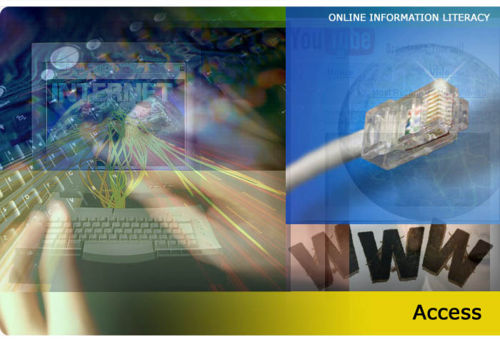Knowledge of a personal computer system
Purpose: people credited with this unit standard will be able to do the following: demonstrate knowledge of the hardware components of a personal computer system; demonstrate knowledge of the operation of the system and application software of a personal computer; operate a printer; complete basic operation and maintenance procedures for a personal computer system; and demonstrate knowledge of ergonomic principles for the safe operation of a personal computer system.
Contents
[hide]- 1 Courses that use this topic
- 2 Demonstrate knowledge of the hardware components of a personal computer system
- 3 Demonstrate knowledge of the operation of the system and application software of a personal computer
- 4 Operate a printer
- 5 Complete basic operation and maintenance procedures for a personal computer system
- 6 Demonstrate knowledge of ergonomic principles for the safe operation of a personal computer system
- 7 Notes
Courses that use this topic
Demonstrate knowledge of the hardware components of a personal computer system
- Range: hardware components may include but are not limited to - central processing unit, motherboard, keyboard, mouse, display monitor, disk drive, Random Access Memory (RAM), Read Only Memory (ROM), printer, digital camera, scanner, modem, connection to a network or the Internet.
- Evidence of four hardware components is required.
- Hardware components are identified in terms of device type and functions.
- Range: device types include but are not limited to - input, storage, output,processing.
- The interaction of components is identified in terms of the flow of data between
them.
Demonstrate knowledge of the operation of the system and application software of a personal computer
- System software and its purpose is identified.
- Application software is identified and its purpose stated in terms of outputs.
- Range: common software applications may include but are not limited to - word processing, spreadsheet, database, desktop publishing,
graphics, communication.
- Evidence of four common applications is required.
- The nature of the interaction between system and application software is identified and described.
Operate a printer
- Data from a personal computer are displayed on printed output media.
- Simple printer hardware faults and printer related error messages are identified and remedied.
- Range: remedies may be demonstrated or explained.
Complete basic operation and maintenance procedures for a personal computer system
- The basic components of a personal computer system are connected to enable it to be operated safely.
- Range: components may include but are not limited to - system unit, keyboard, monitor, mouse or other pointing device, power leads,
digital camera, scanner, disk drive, modem, connection to a network or the Internet.
- Evidence of five examples is required.
- A personal computer system is powered up.
- Simple hardware faults are identified in terms of faulty components and loose or disconnected plugs.
- A personal computer system is cared for and maintained according to specified requirements.
- Range: may include but is not limited to - cleaning, replenishing consumables, use of system protection and/or maintenance utility
software.
Demonstrate knowledge of ergonomic principles for the safe operation of a personal computer system
- Ergonomic principles in terms of user physical well-being are identified.
- Range: posture in chair and seating height; feet placement; position of monitor,keyboard, and mouse relative to user; rest periods and exercises.
- Ergonomic principles in terms of environment are identified.
- Range: two of - lighting, dust, ventilation, room space, temperature,
cables, furniture.
- Ergonomic principles in terms of type of machine components are identified.
- Range: two of - keyboard rest, UV filter, anti-glare screen, mouse design,desk space, printer location.
Notes
Components may include but are not limited to five of: a system unit, monitor, keyboard, mouse, disk drive, printer, digital camera, scanner, connection to a network, connection to the Internet.
